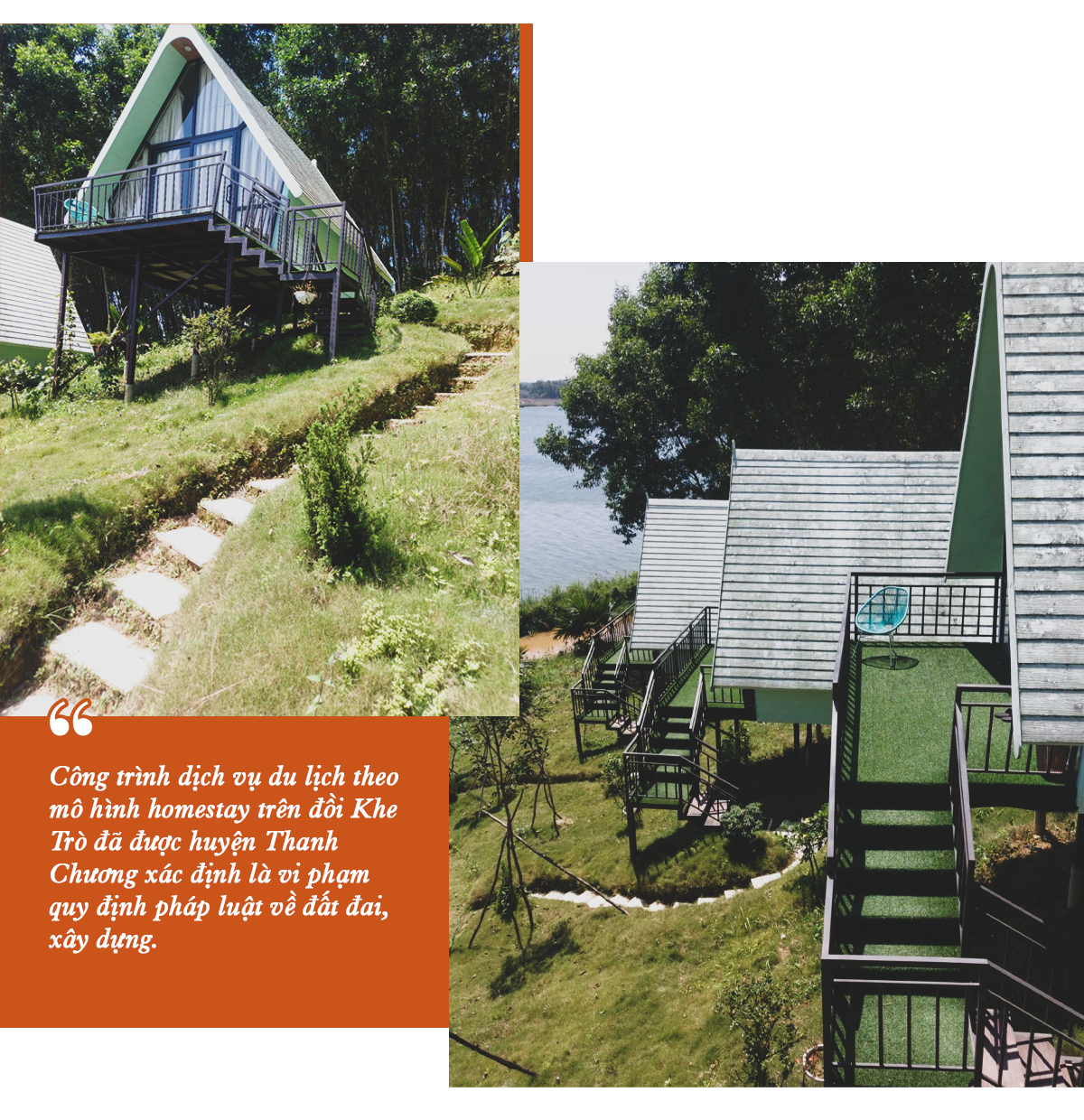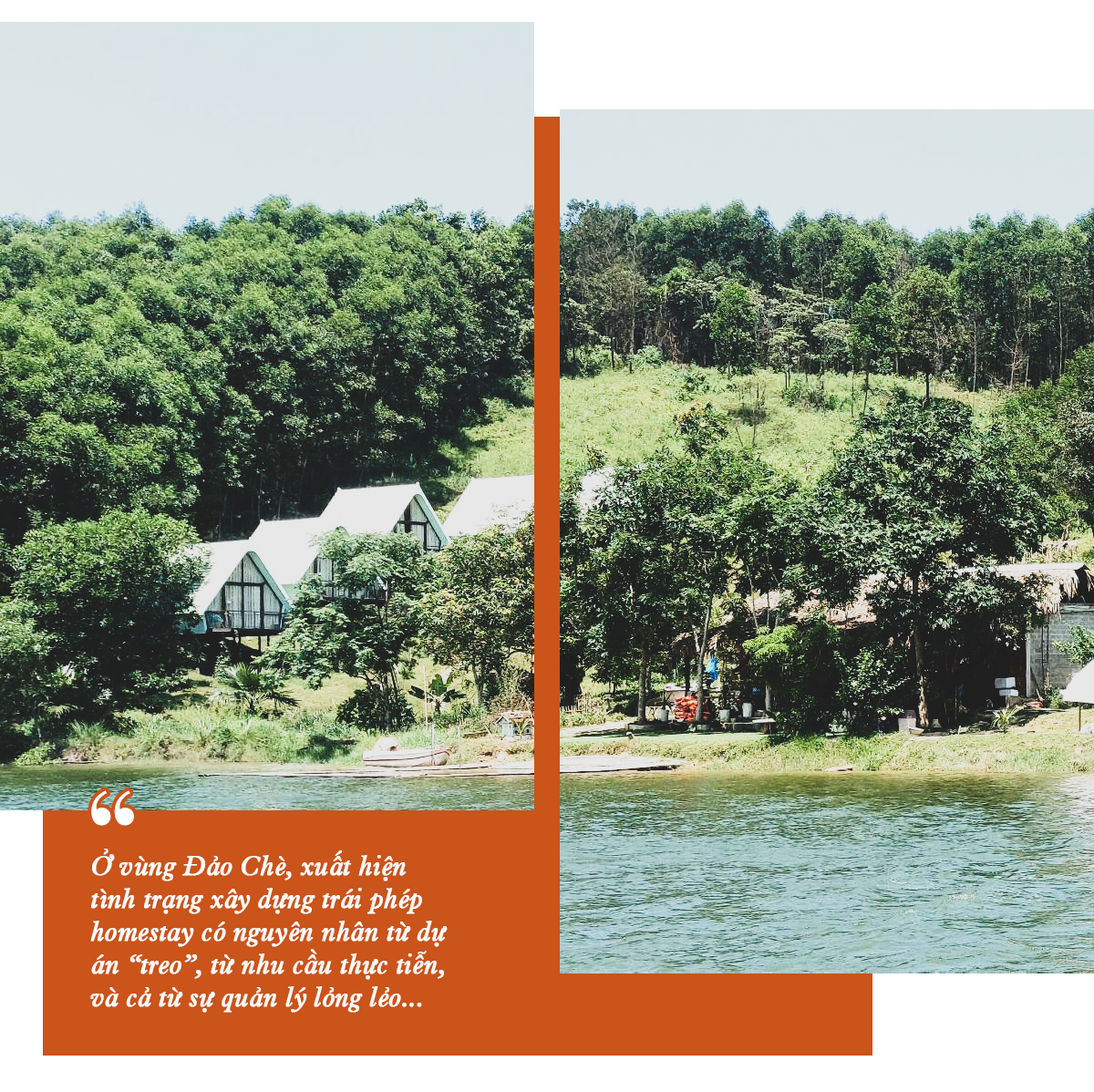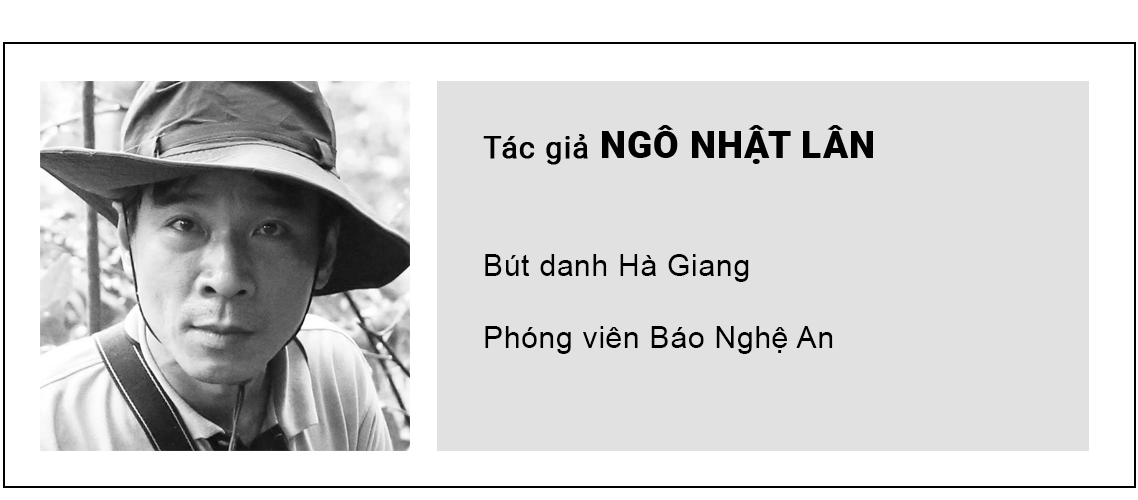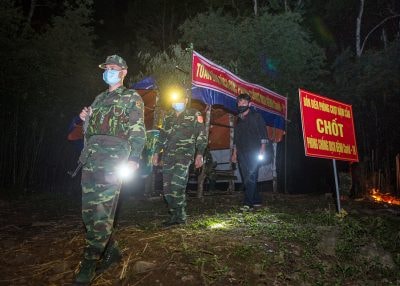
There have been conflicting opinions in handling violations in the Tea Island area, Thanh An commune, Thanh Chuong district: The case of arbitrarily changing land use purposes and illegally building tourism service facilities in the homestay model on Khe Tro hill.
One opinion is that we must strictly handle violations according to the law. That is, we must impose administrative penalties on violators, force the demolition of illegal constructions, and restore the land to its original state before the violation; at the same time, we must strictly discipline groups and individuals assigned to manage the local state.
Another opinion, on the contrary, believes that violations should not be handled too "rigidly". Because according to these people, forcing the demolition of illegal constructions and restoring the land to its original state would be a waste of money and hinder development. They even believe that it is necessary to change the mindset, to support groups and individuals with passion and capacity to carry out similar projects to create development opportunities for Thanh Chuong district, as well as other localities in the province that are still facing many difficulties.

Up to now, the case of building a tourism service facility in the homestay model on Khe Tro hill has been determined by Thanh Chuong district to be a violation of the law on land and construction. Not only that, it is also affirmed that the homestay owner has repeatedly violated the law, even though the local authorities at the commune and district levels have inspected, pointed out, made records, and even requested suspension and demolition. That is why, an official of Thanh Chuong district analyzed that the Tea Island area has a plan to build a tourist area, and there is an investor whose investment policy has been approved by the Provincial People's Committee. If not handled seriously, when there is another illegal homestay construction, will the two-level authorities of Thanh Chuong district be able to prevent and handle it? And will Thanh Chuong district be able to protect the planning of the tourist area approved by the Provincial People's Committee?
But on the other hand, some people are concerned that the planning for the construction of the Tea Island Tourist Area has been in place for more than 6 years, but up to now the investor has not made any move, making the project behind schedule. Meanwhile, the Tea Island area has truly become a destination for tourists from within the province, outside the province, and even foreign tourists. When tourists come to the Tea Island area, in addition to visiting the natural landscape, they have the need to eat, drink, sleep, rest... If they keep waiting for the investor, who knows when? Therefore, should we still punish violations, but should we create opportunities for tourist service points like this homestay to exist?

Indeed, when listening to the two opinions, I felt confused. The opinion that suggested strict handling was clearly correct. Because it was a legal regulation, it must be absolutely followed. There is an old saying "The Emperor who commits a crime will be punished like a commoner", to affirm that when it is a law, regardless of high or low, whoever violates it must be handled according to the regulations. But as in the Tea Island area, the illegal construction of homestays has appeared due to "suspended" projects, practical needs, and also lax management of groups and individuals assigned responsibility by the State...
Therefore, in addition to strictly enforcing the law, it is necessary to re-analyze the planning of the Tea Island Tourist Area and the investor who is "suspending" the project. If the investor does not have the capacity and cannot carry out the project, there should be a new alternative plan. In case there is not a large enough investor, opportunities should also be created for small investors, helping them to create tourist service points according to the homestay model that ensures legal regulations. Do not let it drag on, the small thing will become a big problem!










